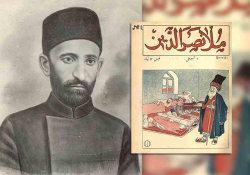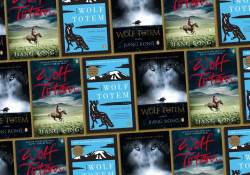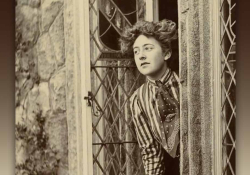Lev Rubinstein: Ordinary Life through the Lens of Russian Conceptualism

In the following appreciation, the author compares the poetry of Russian writer Lev Rubinstein to wandering through a conceptualist art museum. “Rubinstein’s attention to detail and intelligent wordplay,” she writes, “invite readers to discover beauty and complexity in the seemingly ordinary.”
Lev Semenovich Rubinstein (1947–2024) was a Russian poet, essayist, reviewer, and journalist. Born in Moscow, he spent his childhood in the suburb of Mytishchi. Rubinstein graduated with a degree in philology from Moscow State Pedagogical University and spent his early years working for the university library. After graduation he worked as a teacher in a secondary school, then transitioned to work at the magazine Novy Mir. Around the same time, Rubinstein participated in numerous art exhibitions, poetry and music festivals, and events. His first publications appeared in the West in the late 1970s and in Russia in the late 1980s. His works were frequently in such newspapers and magazines as Kommersant, Itogi, and Politburo and have been translated into English, German, Finnish, French, Swedish, Polish, and other languages.
In the 1990s, after the fall of the Soviet regime, he became editor in chief of the monthly literary magazine Znamya. Beyond his literary contribution, Rubinstein’s life was defined by active engagement in social and political causes. His activism was closely associated with his literary pursuits, from advocating for media freedom and promoting human rights to openly criticizing the regime and supporting marginalized communities. Rubinstein’s active political and social engagement serves as a testament to his awareness of global concerns and to his observant nature.
As a writer, Rubinstein frequently delved into both the lives of ordinary people and the world around them. His literary works resonate with many individuals who grew up in the Soviet Union and who often find themselves mirrored in the personas Rubinstein created in his poetry. Through his keen observation and clever use of language, Rubinstein elevates the little things of everyday existence into works of art. His attention to detail and intelligent wordplay invite readers to discover beauty and complexity in the seemingly ordinary. Liza Birger, a literary critic, writes in her blog post for Meduza that in the last few years Rubinstein’s work focused on exploring memory, actively recalling past moments, and reliving joyful experiences. Birger recalls how in one of Rubinstein’s then-recent new year’s essays, he encouraged his readers to develop “friendly curiosity towards others and the unknown.” Rubinstein himself practiced such curiosity. According to Birger, he would always redirect attention back to the other person, expressed interest and actively listened, and avoided being the center of attention. Eventually his “listening” became his main activity. Birger concludes by stating that the poet’s keen approach to the world around him was a poetic strategy, a way of centering the text on others.
Rubinstein’s attention to detail and intelligent wordplay invite readers to discover beauty and complexity in the seemingly ordinary.
Nikolay Alexandrov, a literary critic and Rubinstein’s colleague, shares in his essay for Forbes that gatherings of friends and family, filled with eating, drinking, laughing, talking, singing, and loving, were the essence of life for Rubinstein. The memories of family, childhood, communal apartments, radio broadcasts, and songs of the 1950s were a part of the world he grew up in and served as Rubinstein’s inspiration. Alex Krizhevsky, a journalist, reflects in the blog post “My Lev Rubinstein” for Moskvich Mag that he “was fortunate” to edit Rubinstein’s publication, which was “unnecessary, but [Krizhevsky] could—no, not just hear his speech, but be right in his head. In his observant, curious, and kind head.” In the same article, Rubinstein’s friend Ekaterina Kadiyeva remembers the author as a “fragile little sparrow who held together the Moscow [they] all lived in.” She also praises his observant nature and thoughtfulness: “It always amazed me how he managed to remember [them] all. … He read all [their] texts, listened to all [their] words, remembered all [their] troubles and victories, knew everything about everyone, and always empathized with [them].” Rubinstein was known for his sincere interest in people and for transforming their lives into his art. Colleagues remember him as observant, kindhearted, and deeply empathetic, leaving an enduring mark on those he interacted with.
In the world of poetry, Rubinstein was known for his unique ability to view ordinary life through the lens of conceptualism. By employing conceptualist techniques, such as fragmentation, irony, and wordplay, Rubinstein encouraged readers to question traditional notions of literature and art. In the 1970s, Rubinstein created a new genre of poetry by writing on library catalog cards, which was a revolutionary approach to poetry that challenged conventional forms of expression. He drew inspiration for his catalog cards from dialogues on everyday topics, passages from books, and phrases reflecting the mindset of the Soviet era. When reading such a poem, the audience might notice an apparent pattern as they delve into reading, but soon they realize how quickly things change within the text. The author creatively employs the idea of a stack of cards, shuffled accidentally or purposefully, allowing readers to follow along seamlessly. The speaker presents an overwhelming number of scenes throughout the poems, each evoking a spectrum of emotions ranging from nostalgia and laughter to profoundness and confusion. A prime example of Rubinstein’s catalog card poetry can be found in his poem “Mom Was Washing a Window Frame” (1987), in my translation:
1. Mom was washing a window frame.
2. Dad bought a TV.
3. The wind was blowing.
4. Zoya was stung by a wasp.
5. Sasha Smirnov broke his leg.
6. Borya Nikitin bashed his head on a rock.
7. It started raining.
8. One brother was teasing another.
9. Don’t cry over spilled milk.
10. And the first word was “knee.”
11. Yura Stepanov built a treehouse.
12. Yulia Mikhailova was strict.
13. Vova Avdeyev was fighting.
14. Tanya Chirkova is an idiot.
15. Galya Fomina’s fiancé is one-armed.
16. Sergey Alexandrovich had a phone installed.
17. An invalid burned in a car.
18. We used to go to the forest.
19. Grandma had cancer.
20. Grandma died in her sleep.
21. I used to dream about Grandma often.
22. I was afraid of dying in my sleep.
23. Igor Dudkin looked Georgian.
24. Sergey Alexandrovich was joking with Dad.
25. The Sorokins had plums, but they also had Jack.
26. Kids were playing volleyball in the clearing.
27. Gleb Vishinsky used to bring a mouse.
28. Lev Levkovsky was a liar.
29. Elena Illarionova knew Sasha Chorny.
30. The power would go out from time to time.
31. An interesting movie was playing in theaters.
32. The brother was starting the record player.
33. Dad yelled loudly.
34. The troublemaker was clanking the chain.
35. Sasha Smirnov was jealous of my postal stamps.
36. He could move his ears.
37. Then I mastered it too.
38. Polina Mironova said her Borya is a blockhead.
39. Claudia Efimovna’s husband was Mikhail Borisovich.
40. Raisa Savelievna worked as an economist at grocery store No. 40.
41. Yurka Vinnikov was her son.
42. Ksenia Alexeevna was quite down-to-earth, but a very good woman.
43. Pavlik and Rita Aronov lived next door.
44. By the way, Tanya Chirkova lived in that building, too.
45. I don’t recall the name of Raika Guseva’s husband, unfortunately.
46. The wind was blowing.
47. My brother was telling me what Mom and Dad do in the room next door.
48. Sorrel, radishes, and leeks were also growing.
49. Slava Novozhilova had a barbwire scar.
50. It started raining.
51. Tanya Beletskaya’s doll was scary as hell.
52. Yura Stepanov’s father had no teeth, his mother was fat, and his sister had no brain.
53. The sister’s name was Yulya.
54. I didn’t have a sister, but I had a brother.
55. My brother said Stalin passed away today.
56. My brother smacked me for laughing and acting a fool.
57. Dad quit smoking.
58. We hoped the war would start soon.
59. We loved the Chinese.
60. I wasn’t allowed to cross the road.
61. I almost died from gas fumes.
62. Galya Fomina was an education student. When I asked her what makes it rain, she started by saying, “Our country has many seas and rivers . . .” I didn’t understand what she said after that, so I don’t remember.
63. Sasha Smirnov had a habit of farting indoors.
64. No one would hear it, but it smelled terrible.
65. He’d never say it was him.
66. I was learning how to ride a bike.
67. I was ashamed of my name.
68. Once I saw such a huge caterpillar that I can’t forget it even now.
69. I felt sick and threw up.
70. Once I walked into Galya Fomina’s room without knocking, and it was the first time I saw.
71. Once I had a bad feeling and rushed in.
72. They arrived, but too late.
73. It was storming all night and there was a thunderstorm.
74. The weather was horrible, everything was changing and leaking.
75. The wind blew from around the corner, bringing chills and melancholy.
76. The thunder struck, boredom set in, and a sense of confusion foamed in my chest.
77. It whistled and sparkled in the dark, and hail loudly battered on the roof.
78. The tops of the pine trees trembled, and clouds hung over the porch.
79. It began in the beginning, but it ended in the end.
80. Everything stayed the same above me but was shaking under me.
81. They were whirling, falling, floating, and vanishing.
82. Everything seemed normal that day.
83. I got up, put clothes on . . .
In the poem, the speaker—perhaps a young boy growing up in the 1950s or 1960s in the Soviet Union—recalls different moments of his life: from personal anecdotes about teachers, classmates, and friends to nationwide events such as Stalin’s death in 1953. Reading such a poem can suddenly evoke a deep sense of nostalgia within the reader—whether because the reader grew up during the same era depicted in the poem and experienced similar events as the speaker, or simply heard about such moments from their parents and grandparents remembering their own carefree childhoods. The beauty of the poem lies in its universal context; by not openly naming the speaker, the poem invites anyone to envision themselves in their place, creating a deep and personal connection with the narrative.
When reflecting on the catalog card poems, Rubinstein called the genre an “experiment” and expressed his surprise at how it turned out: “It happened to be capable of self-development and evolvement on its own.” The author then said that the characters in each catalog card are, in fact, other texts, which he referred to as “pretexts.” These pretexts, like characters, “come to life, engage in complex interactions with each other, create dramatic tension, die, are reborn, and so forth.” The first “pretext” Rubinstein incorporated into the title of the poem “Mom Was Washing a Window Frame” and the poem’s first line. “Mom was washing a window frame” (Мама мыла раму) is a common phrase that often appears in Russian primers (буквари) for children who are learning to read. This phrase is chosen because it contains a repetitive pattern of syllables (ма-ма мы-ла ра-му), which helps young readers understand the basics of phonetics and word recognition. Within the context of the poem, the phrase comes across as accidental. Moreover, the line does not define the rest of the poem as a children’s primer. At the same time, the next line, “Dad bought a TV” (Папа купил телевизор), draws a scene of a household and defines the speaker of the poem as someone reflecting on memories from their childhood.
Rubinstein challenged traditional understandings of language and invited readers to look at familiar words and expressions in a fresh, often unexpected manner.
Literary scholars Gurlenova and Gabb—in their work “Artistic Techniques of Russian Poetic Conceptualism” (2021)—discuss how Rubinstein’s card poetry stands as a move toward visual and performative literature, and how reading it could be approached as a physically observable event. In “Mom Was Washing a Window Frame,” Rubinstein recounts random scenes observed in the past, moments such as two brothers teasing each other, Yura Stepanov building his treehouse, Galya Fomina’s fiancé missing an arm, kids playing volleyball in the clearing, etc. Gurlenova and Gabb also suggest that Rubinstein’s use of wordplay in his catalog cards may be viewed as a conceptualist technique similar to polystylistics. Rubinstein blended different linguistic elements on his cards—including dialogues, literary lines, and common phrases—to create new context and meaning. Through this approach, Rubinstein challenged traditional understandings of language and invited readers to look at familiar words and expressions in a fresh, often unexpected manner. Similar to how conceptualists encourage new perspectives on old statements, Rubinstein’s wordplay calls for the reconsideration of everyday thought and speech. For instance, in “34. The troublemaker was clanking the chain” (Буян гремел цепью), the use of “буян,” an old Russian term for someone who constantly seeks confrontation or causes trouble, adds layers of meaning. By incorporating this outdated word, Rubinstein enriched the linguistic tapestry of the poem. Moreover, the phrase “греметь цепью” (clank chain) offers a metaphorical depth, encouraging readers to reconsider its implications within the context.
Another fascinating idea behind Rubinstein’s catalog cards, which literary scholar Kazarina develops in her work “Conceptualism: Life after Death” (2022), is how the ordinary, the philosophical, the poetic, and the prosaic “spins, twirls, and flips.” For instance, immediately after the speaker states that his grandma passed away in her sleep, he shares his fear of dying in his sleep, too. However, his next thought after that is “23. Igor Dudkin looked Georgian,” which, perhaps, has no relation to either his grandma or his fears. Kazarina claims that there are no explanations given to the audience as to why or where the narrative is heading, so each reader must interpret the direction for themselves. This lack of direction implies that the role of the author is transferred to the reader; the reader is given the right to have the final word, the concluding gesture that gives the work completeness and imparts meaning to this unity. This idea is incorporated frequently in the translated poem.
Rubinstein’s catalog card poem “Mom Was Washing a Window Frame” serves as a successful experiment in literature that challenges conventional forms and introduces readers to a new world of shuffled narratives and linguistic play. As readers navigate through the seemingly random scenes and pieces of memory, they witness a rich tapestry of emotions and reflections, from nostalgia to confusion. Through his avant-garde style and narrative structure, Rubinstein encouraged readers to reconsider the ordinary and find new meaning in the everyday.
Ultimately, scrolling through Rubinstein’s poetry collections is similar to wandering through a conceptualist art museum. After each poem, readers take a moment to contemplate the question, “What did the author mean by that?” What makes it so fascinating is that there is no ultimate answer or clear explanation from the author. Instead, interpretation depends on the readers’ imagination and personal experiences. Rubinstein’s poetry invites readers to engage in the creation of meaning, emphasizing that there will never be a right or wrong answer. For some readers, his poetry represents a time machine that can take them back to the world they grew up in, evoking memories and emotions that have been long forgotten. For others, it serves as a window into a life greatly different from their own, providing insights into the Soviet era and the nuances of its everyday existence. Rubinstein’s poetry collection reveals layers of truth and nostalgia, resonating across borders and generations.
University of Oklahoma
Works Cited
Alexandrov, N. “How Poet Lev Rubinstein Preserved His Inner Child throughout His Life and Gave Hope to Others.” Forbes, 2024.
Barysheva, A. “My Lev Rubinstein.” Moskvich Mag, 2024.
Birger, L. “Lev Rubinstein, the Keeper of Happiness, Always Remained an Optimist – Even in the Most Challenging Times for Optimists.” Meduza, 2024.
Gurlenova, L. V., and E. Gabb. “Artistic Techniques of Russian Poetic Conceptualism.” Human. Culture. Education 3, no. 41 (2021): 61–86.
Kazarina, T. V. “Conceptualism: Life after Death.” Culture and Text 4, no. 51 (2022): 157–66.
















